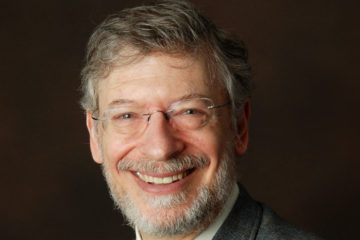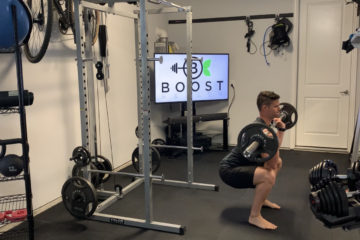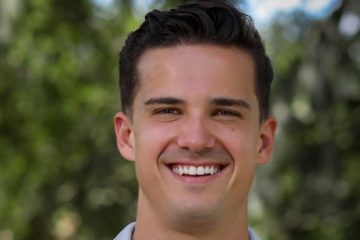
Disclaimer: Fasting is not appropriate for everyone. Please check with your doctor before beginning any fasting program.
Over the last few years I kept hearing about the benefits of intermittent fasting like reduction in body fat, better insulin resistance, reduced inflammation, etc. Since I had already been doing an overnight fast of 16 hours for several years, I felt like I had already ticked that box. Then I started hearing that there are some other very exciting benefits of fasting kick in at around the 24 hour mark.
Fasting isn’t anything new of course. Yes it is a bit trendy now with all of the health benefits coming out in research, but it has been used for centuries. In fact Hippocrates, widely regarded as the “Father of Medicine”, is one of first physicians to be documented as a supporter of fasting as he felt it helped the body heal itself. This was over 2,000 years ago!
Google “fasting” and you will bombarded with articles and websites on intermittent fasting and weight loss. There is seemingly not as much love for prolonged fasting of 24 hours or more. Maybe because a 24 hour fast sounds very difficult. I know it did for me. It took me years of hearing the benefits before I summoned the energy to give it a try. Also I have noted there is a funny thing with fasting terminology. Some say 24-48 is prolonged or long term and others say this is a short fast or even intermittent. It seems that most of the research journals describe prolonged fasting as 24 hours or more, and as such this is the definition I will use. And my focus with prolonged fasting is not weight loss or six pack abs. It is all about longevity.
Here are the tips, benefits, and what to expect for your first 24 hour fast:
1. It Is All About The Autophagy
The most exciting to me is the process of cell turnover called autophagy. This is basically a spring cleaning for your cells where your body gets rid of dysfunctional cells (like cancer cells) and creates new ones! With a history of cancer in my family this really got me fired up to give it a try. I recently heard Dr. Stephen Cabral call prolonged fasting (fasting 24 or more hours) the “fountain of youth”. He uses it in his practice as a tool to help patients heal themselves from the inside.
A 2010 study in Autophagy showed a large amount of autophagy in fasting mice, especially between 24 and 48 hours of fasting. 2018 article on MIT website showing that stem cells in intestine can double in regeneration with 24 hours of fasting in study on mice. As we get older our bodies natural ability to do autophagy cell cleaning can be reduced and this can lead increased risk of cancer and Alzheimer’s. Basically we need to give our bodies an occasional dedicated rest from eating so it has time to get rid of the cellular trash.
2. Build Up With Intermittent Fasting First
If the prospect of not eating for an entire day sounds scary to you at first, it was for me, then you can slowly work you way up to a 24 hour fast with intermittent fasting. There are various types of intermittent fasting but my favorite is the basic 12-16 hour overnight fast. Basically it is as simple as waiting at least 12 hours from your last meal of the previous evening until your first meal of the day the following morning. For example, if you ate dinner at 7pm then you would wait until at least 7am to eat the following day. Easy peasy. Then you can slowly build up to 13 hours, 14 hours, and so on until you feel confident in going for the full day. I actually did intermittent fasting every day for several years before I finally decided to take the plunge in the 24 hour fast. The evidence of autophagy removing cancer cells was too exciting to ignore and I finally decided to give it a try over the end of year holidays in 2018. I loved it so much I have started doing the 24 hour fast weekly from Sunday dinner to Monday dinner.
Building up slow may not be necessary for everyone though. In fact I had a few of my clients try the 24 hour fast first since I have been raving about it lately. They just went straight for the 24 hours without slowly building up and did just fine.
3. Timing It Just Right
The Sunday dinner to Monday dinner seems to work out great for a lot of folks. It is nice to be able to eat dinner with your family for the last meal of the weekend and then you just need to make it until Monday dinner to hit your 24 hours. I think it is very helpful to eat at around 6:30 or 7pm and then go to bed fairly early, like before 9pm. When you wake up the next morning you have already got quite a few hours completed. Below is a schedule of my 24 hour fast just to give you some reference of works for me in case you want to try something similar.
Sunday 6:30pm – 7:00pm – Dinner with family
Sunday 8:30pm – Bed
Monday 5am – Wake up and prep for day
Monday 6am to 7am – Teach fitness class
Monday 7am to 8am – Work on difficult output task like major project
Monday 8am to 8:30am – Take kids to school
Monday 8:30am to 9am – Gratitude and productivity journaling
Monday 9am to 1pm – Personal training clients
- Hunger starts to occur for me at 10am or so but goes away after 15 min
- Second hunger wave hits me at about 1pm or so but again goes away
- I take extra drinks of water when hunger kicks in
Monday 1pm to 3pm – 90 minutes of output task (i.e. major project, edit podcast, etc.), 10 min walk, then 20 minutes of input task (i.e. email, scheduling, calls, etc.).
Monday 3pm to 5pm – 90 minutes of output task (i.e. major project, edit podcast, etc.), 10 min walk, then 20 minutes of input task (i.e. email, scheduling, calls, etc.).
- I usually notice a nice surge of energy and a euphoric feeling in the last 4 to 5 hours of the fast
Monday 5pm to 6:00pm – Dynamic warm up, strength training workout, post workout mobility, 10-15 min sauna
Monday 6:00pm to 7:00pm – Spend time with family
Monday 7:00pm to 7:30pm – Eat dinner after 24 hour fast
Monday 7:30pm to 8:30pm – Spend time with family
Monday 8:30pm – Bed
4. Have A Nutrient Dense “Last Meal”
I jokingly call the final meal on Sunday night before the fast begins the “last meal”, like one would receive before their execution. As you would want with your last meal before your execution, you would want the same for this final meal before fasting, which is a healthy serving of nutrient dense food. This should include lots of veggies, fruits, healthy fat, high fiber, and protein. As much as possible should be whole foods. If you eat heavily processed, high sugar, nutrient poor, low fiber foods, then you will probably have a more challenging time as you may be riding the blood sugar rollercoaster.
5. Hunger Pangs Are Normal
I know this is a shocker but you will go through a few periods of hunger. What may be surprising, however, is how quickly they subside. In my own experimentation I have noticed my biggest hunger pangs occur when I would normally eat for the first time during the day at about 10am or so. Then I get a couple more waves of hunger at 1pm or so and then a few hours later. Then they just seem to go away for the last few hours of the fast. A few of my clients have been experimenting with the 24 hour fast lately and they agree with this finding of a few hunger pangs during normal eating periods but then subsiding fairly quickly.
6. Remember The Benefits
Nothing makes it easier to make it through a full day without eating for me then thinking about all of the cellular trash that is getting thrown it of the body and all the wonderful new cells being created. I think about my body having a rest from the incredibly taxing job of digestion and having time to do work it was made to do. I think about cancer cells being recognized by my body and being thrown out before they have an opportunity to create issues. Most importantly, I think about how this could be adding years to my life to spend with my family and friends.
7. Huge Boost Of Euphoria And Energy
As mentioned in my fasting day schedule, I get a pretty substantial boost of energy and an almost euphoric feeling in the last few hours of the fast. This happens by about hour 19 or so. I choose this as a time to get a workout in. It doesn’t sound like this happens to everyone unfortunately, but I have heard similar findings for other folks experimenting with a similar schedule.
8. Lots Of Water
I am a pretty good water drinker on a normal day and always have my refillable bottle close by to sip on. I have noticed on fasting days that I probably drink at least 3 more bottles of water per day. My refillable bottle is 24 ounces, so that is over 70 ounces of additional water per day. Sometimes hunger is dehydration in disguise. Your body is working hard on the autophagy process, so it makes sense that it will need to remain hydrated. So basically drink water when you are thirsty, drink water when you are hungry, drink water when you are tired, you get the idea.
9. Are Black Coffee and Plain Tea Allowed In Fasting?
This depends on who you ask. It is actually quite a heavily debated topic. I had no idea the can of worms I was opening up when I began researching this.
Dr. Stephen Cabral on the Mind Pump Podcast said that the caffeine in coffee will spike cortisol and raise blood sugar which you want to avoid. He instead recommended hot ginger tea instead.
Dr. Rhonda Patrick Ph.D in biomedical science and expert on nutritional health, says that drinking black coffee breaks the fast because it contains caffeine which affects our brain, gut, liver, etc., which sets your biorhythm clock.
Meanwhile other experts, like Ben Greenfield, believe that black coffee can actually enhance your fast by increasing fatty acid mobilization and improving metabolism.
There is also evidence of improved autophagy with coffee. A 2014 study in Cell Cycle that shows an increase in autophagy in mice with consumption of coffee (both caffeinated and decaffeinated coffee). The researchers believe it is the polyphenols in coffee that cause the increase in autophagy.
So what do I suggest? I have had some brain fog during 24 hour fasts when I drink my usual 2 cups of coffee. Since brain fog can be a symptom of over-caffeination I will experiment with water only, ginger tea and water, and water with limited coffee. Based on how I feel with these different methods I will make a call on whether to avoid coffee and/or teat on my 24 fast days. For your first fast day I would suggest less coffee than you would normally drink, or no coffee at all, as the body seems to be more sensitive to caffeine in a fasted state.
10. Stay Busy
The worst think you can do during a 24 hour fast is to start thinking about how hungry you are and how much time you have left. Keep the body and the mind busy to avoid giving in early. Work on a complicated task for your job. Go for a walk. Watch a movie. Drink water. Get outside and play with the kids. Run errands. Do some mobility work or stretches. If you have things on your to do list that you want to knock out, this is a great day to get them done.
11. You Are Made For This
Don’t be scared, like I was. Fasting is appropriate and safe for most adults. We were designed to go without food and thrive when we occasionally take a break from digestion as discussed with the aforementioned autophagy. But in 2019, in many parts of the world, we don’t have to work very hard or wait very long to get our food. We don’t have to forage or hunt for food for hours, or even days, like our ancestors did.
But we have evolved to survive through long periods without food. Think about the “survival of the fittest” scenario where we have adapted as a species to operate optimally in these times of famine and then consider how often we are activating this part of our genetic makeup. I think in the case of many modern humans, these genes are sitting dormant. Dr. Rhonda Patrick calls this idea of waking up or turning on genes, “genetic switches”. She says that these genes get turned during a period of good stress or hormesis.
A 2018 study in Nature Reviews Neuroscience discusses how humans evolved to function well in a fasted stated for both our brains and our bodies, by changing fuel sources through a metabolic switch where fat is used for energy after it runs out of glycogen. Each time we eat we replenish glycogen stores in our liver this can tide us over for up to 14 hours if not exercising. It also mentioned how being fasted also causes cellular adaptations that improve brain overall function and resistance to stressors.
These reasons make me think we should be doing more 24 hour fasts!
12. Double Down
Fasting isn’t the only way to activate autophagy. Exercise does a fine job of it too. According to a 2012 study in Nature researchers working found exercise can induce autophagy in skeletal and cardiac muscle, the liver, the pancreas, and adipose tissue in mice. We know that there is evidence for exercise improving long term health, protecting against cardiovascular disorder, inflammatory diseases, and cancer. The researchers in the study speculated that this exercise induced autophagy may represent the cellular mechanism by which exercise can have these health benefits. I would not recommend doing exercise the first day you do a 24 hour fast, but after you get a few of them under your belt you might consider easing some exercise in during the fast. I have personally tried working out in about hour 15 of the 24 hour fast and about hour 20. I liked the later workout better. The early workout seemed to make me quite a bit hungrier and I had to hold out longer to make it to hour 24.
13. The “First Meal”
I have heard some folks suggesting that you should be careful with your first meal after your 24 hour fast and maybe starting with a light snack. I don’t agree with that. I suggest just planning on a normal healthy meal. It should look like your “last meal” in that it should be nutrient dense with lots of whole foods, fruits and vegetables, fiber rich, etc. If I was to suggest avoiding something, or being careful, I would recommend against a crazy “cheat meal” with lots of saturated fat, oil, and refined sugar as it could blow up like a bomb in your gut. Besides, you just did all that hard work creating healthy new cells so let’s feed them healthy nutrients to thrive on.
I hope these tips, benefits, expectations, and sample schedule will help you be successful in your 24 hour fasting efforts and help you add it to your regular weekly routine as appropriate.
Please click the link below to your favorite podcast app to listen in to this episode or watch the show on BOOST Health TV
Podcast: Play in new window | Download
Subscribe Apple Podcasts | Google Podcasts | RSS







